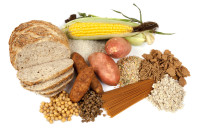Is it possible to reverse your type 2 diabetes?
Medically reviewed by Dr Sultan Linjawi, Endocrinologist & Diabetes Specialist — January 2026
The short answer is… maybe.
We know that type 2 diabetes is a progressive disease. When we put on weight, our fat cells (the body’s main ‘fuel’ storage facility) reach a point where they become full, and are almost at bursting point. They basically shutdown their ability to store more fat, and become ‘distressed’ and resistant to the hormone insulin. This puts a strain on the pancreas to produce even more insulin, trying to force our fat cells to work. Eventually, the pancreas wears out, and is unable to produce adequate insulin to control blood glucose levels, causing blood glucose levels to rise. Sooner or later, this ultimately leads to a diagnosis of type 2 diabetes.
Because diabetes is a progressive disease it’s important to think about it on a continuum of 30 years or so.
The first 10 years – Pre-diagnosis
You might be in your 40s or 50s and put on a little weight around the tummy. This extra fat starts to fill fat cells. Putting pressure on the pancreas to produce adequate insulin, in order to deal with the increased demands for sugar to be stored as fat. This increase in demand for insulin is known as insulin resistance, or prediabetes. Your GP can test for pre-diabetes by measuring your insulin and blood glucose levels using an oral glucose tolerance test. So if you think you might be at risk, it’s worth asking for.

So how do I change my diabetes fate?
Depending on a person’s genetics, weight, motivation and activity levels, if caught early enough, insulin resistance can be improved, and, the progression of rising blood glucose levels can be slowed.
So, ‘reversing’ is probably not be the best description for most people, ‘slowing the progression’ or a ‘diabetes hiatus’ might be more apt. If we can slow the progression enough, we may actually be able to halt type 2 completely for many years.
How can I slow down diabetes?
Unfortunately, you’ve heard it before…. improving the quality and reduce the quantity of the food we eat is the first step. Ensuring you are active regularly is also important.
If you are overweight, particularly if you carry you weight around your middle, a weight reduction will help to slow the process.
How much weight do I need to lose?
That really depends on you and your body type. Current guidelines recommend a waist circumference less than 80cm (32inches) for females and 90cm (36 inches) for males. However, even small amounts 5- 10% of your body weight can make a big difference!
There are certain medications, particular ways of eating and psychological support that may all help slow, halt or even trickle back diabetes progression. Your doctor and diabetes team can help you to explore all of these options and develop a plan that’s right for you.
Make the change!
No matter which stage of diabetes (or prediabetes) you’re at, small (or maybe big) changes can slow down its progression. Lifestyle changes may reduce the number of medications your doctor prescribes in the long term, and hopefully, allow you to live a long and healthy life.
Want to know more?
If you have already been diagnosed with diabetes and would like to know more about how best to manage the condition, you can join or explore our personalised 12 week diabetes program. The first week is free!
If you want to learn more about diabetes, we have dedicated information pages:
DO YOU WANT TO GET YOUR DIABETES UNDER THE BEST CONTROL?
Click the program that best describes your situation.
Diabetes and Diet Articles - What do I need to know?
Diet, and what you eat, plays an important role in diabetes management. Your diet is also classified as a modifiable risk factor in diabetes. Making changes to your diet can even play an important role in reducing the risk of developing diabetes related complications.
Follow the links below to learn more about diet in diabetes.
Diabetes diet: what should I eat if I have type 2 diabetes?

Making healthy food choices is important in diabetes treatment. In ‘Diabetes diet: what should I eat if I have type 2 diabetes,’ we have outlined 7 important changes you can make to you diet.
How to reduce carbs in your diet

There are so many helpful tips in this article! We cover some clever ways to reduce the carbohydrate content of the meals you are eating, without losing any flavour.
Should I follow a ‘low carb’ diet if I have diabetes?

There are so many helpful tips in this article! We cover some clever ways to reduce the carbohydrate content of the meals you are eating, without losing any flavour.
Diabetes diet. Why is it not more simple?

The link between diabetes and diet isn’t so simple. Food and nutrition do play a role when developing diabetes. But what does the evidence say?
The “Diabetic Diet”: When did it begin and how has it changed?

This article is great for those who like a little history! The article talks about how the treatment of diabetes has changed over the years, starting from 1500 BCE!
Yo-Yo Dieting – More serious than just regaining weight!

Yo-Yo dieting can be harmful to your health. A correlation has been found with yo-yo dieting and heart disease! You can read about the Framingham Heart Study in this article.
4 easy diet and exercise steps!

Looking for some really quick tips on how to make simple changes to your diet and exercise? We have them here and it involves the whole family!
How Can People Eat Junk And Not Gain Weight?

Remember: thin doesn’t necessarily equal healthy. And this was confirmed in a new report which showed that a poor diet is one of the highest contributing factors to chronic disease in Australia, second only to smoking!
Why Do We Eat When We Are Not Hungry?

Typically, people who are tuned in to their hunger cues are able to stop eating when they are satisfied and won’t eat again until they become hungry. This is referred to as intuitive eating. But even intuitive eaters will sometimes override their fullness signals for certain triggers.
When our food choice isn't just about food

Have you ever felt like your food preference or portion sizes were almost out of your control? It is possible that in some way they are. The difficult thing is eating can be driven by our mind instead of being a behaviour to reduce physical feelings of hunger and to stay alive and well.
How to treat a hypo without spinning your sugars into the twenties!

While the best way to manage a hypo is to prevent one happening in the first place, preparing for a hypo is the next best thing. As soon as your BGLs drop below 4mmol/L (72mg/dL), you need to act, as an untreated hypo can turn into a medical emergency very quickly.



